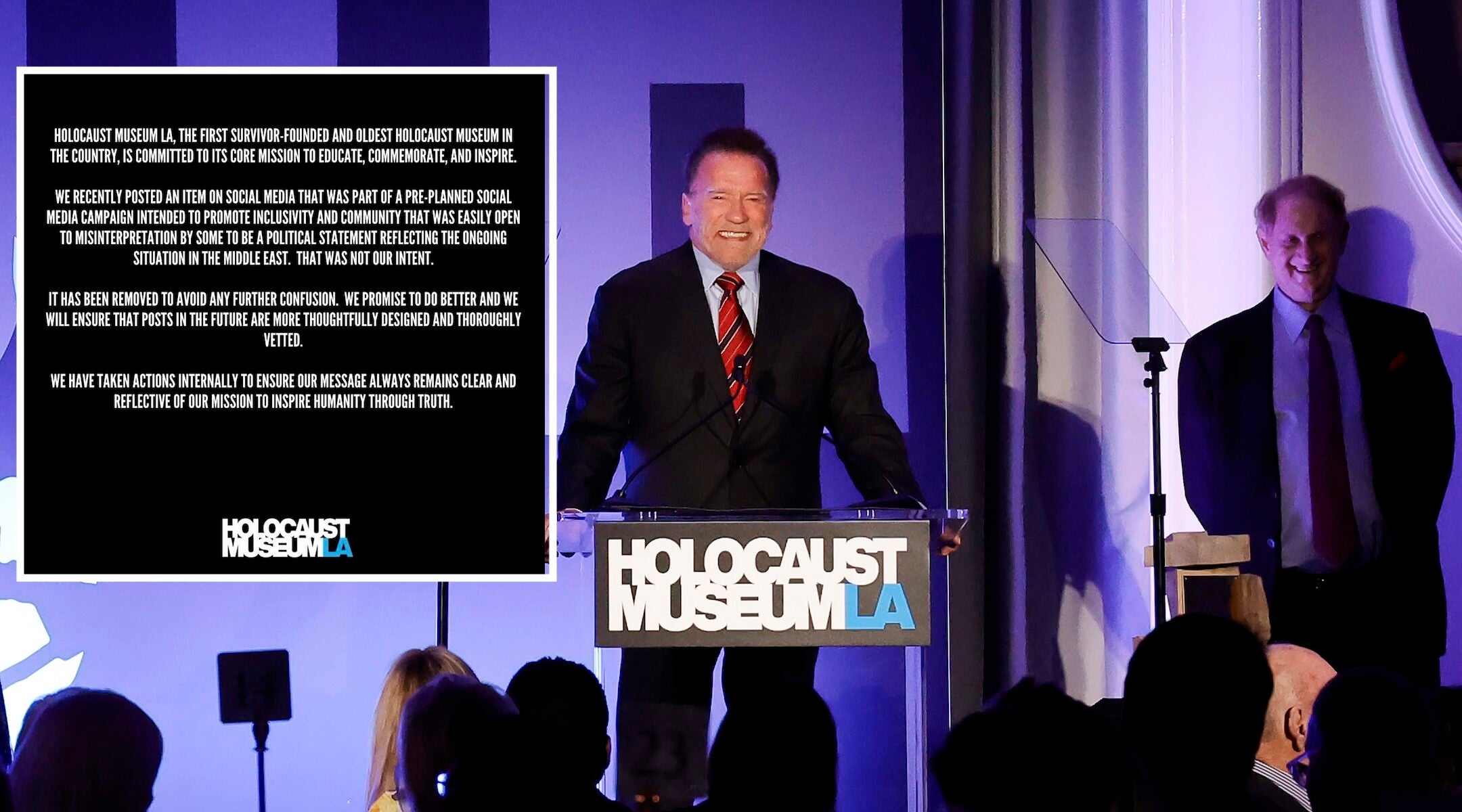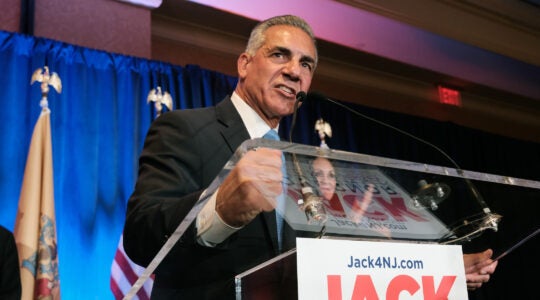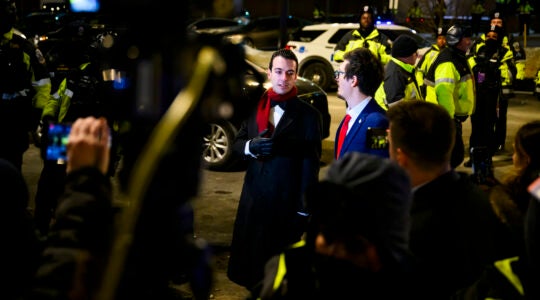Amid sharp criticism, Los Angeles’ Holocaust museum deleted an Instagram post over the weekend that proclaimed, ”’Never again’ can’t only mean never again for Jews.”
The museum apologized for the post and shot down speculation that it had been intended to suggest that Israel was committing genocide in Gaza.
The post showed six interlocking arms, in varying skin tones and one with numbers tattooed on it, forming a Jewish star. On subsequent slides, the post elaborated on the message, saying, “Jews were raised to say ‘Never Again.’ That means never again. For anyone,” followed by “Jews must not let the trauma of our past silence our conscience,” and “Standing with humanity does not betray our people. It honors them.”
For some who saw it, the implication was clear: While the post did not mention Gaza or any other specific conflict, Holocaust Museum LA was taking a stance against Israel’s war there, which an increasing number of people have termed a “genocide.” The post went up as the war reached its 700th day.
In the comments, some praised the museum for issuing what they saw as an overdue condemnation of the war in Gaza. But many others condemned the museum for what they said was diluting the specific catastrophe of the Holocaust.
“Genocide against ANY group is wrong and we should all stand against it, but we can easily make this statement without All Lives Mattering of the phrase ‘never again,’” the social media activist Debbie Lechtman, who posts as Rootsmetals, wrote on Instagram. She noted the history of the phrase, which some cite trace to a 1926 Hebrew poem about the fall of Masada but gained wide purchase in English after the Holocaust, particularly after being adopted by the militant rabbi Meir Kahane.
Late Saturday night, the museum removed the post, issuing a statement in which it pledged to “do better” including by vetting social media posts more thoroughly in the future.
“We recently posted an item on social media that was part of a pre-planned social media campaign intended to promote inclusivity and community that was easily open to misinterpretation by some to be a political statement reflecting the ongoing situation the Middle East,” the statement said. “That was not our intent. It has been removed to avoid any further confusion.”
Lechtman lamented that in deleting the post, the museum had also removed comments from her and others meant to educate others about the term “Never again” and why its use in contexts unrelated to the Holocaust can be offensive.
The dustup reflects a broad debate over the extent to which Holocaust remembrance should be widened to include other groups and genocides. Many Holocaust museums have held exhibitions about other genocides in an effort to demonstrate how the lessons of the Nazi genocide of the Jews resonate today, sometimes generating controversy in the process. The war in Gaza has placed new pressure on Holocaust museums.
“Never again,” too, has faced debate over whether it should ever be widened beyond the Holocaust. It has been used by Jewish activists to oppose gun violence as well as other campaigns of discrimination and violence, including against the Uyghur minority in China. During the war in Gaza, it has become a rallying cry for progressive Jews who oppose Israel’s military campaign there.
Holocaust Museum LA, which was founded by survivors, is currently closed while it is being overhauled in advance of a planned 2026 reopening.
JTA has documented Jewish history in real-time for over a century. Keep our journalism strong by joining us in supporting independent, award-winning reporting.






